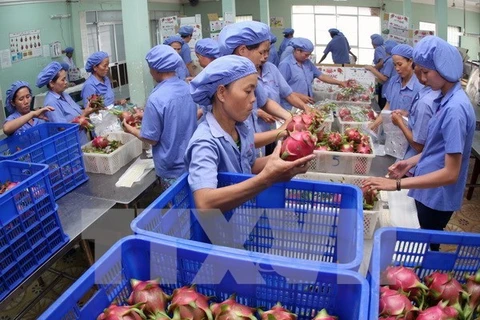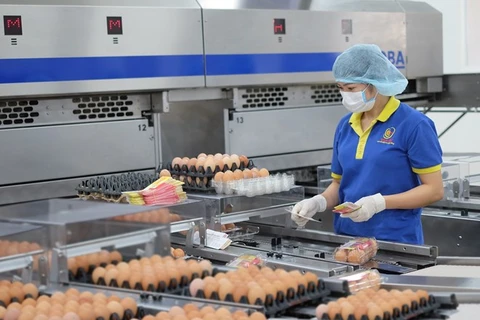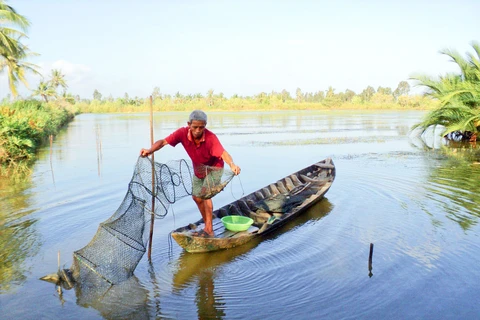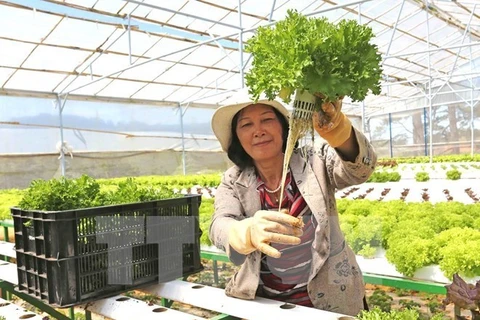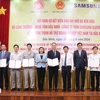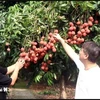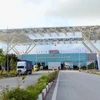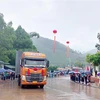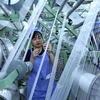Hanoi (VNS/VNA) – The capital city of Hanoi is leading the country in terms of rural development and is setting an example for the nation with 294 out of 386 communes meeting or exceeding the Government’s new rural development standards.
One of the city’s most celebrated achievements was its success in reorganising agricultural assets. The city is now running 154 large rice fields and 101 organic vegetable farms. Re-organising agricultural land into centralised and large production zones is regarded as a critical step in rural development to take advantage of shared infrastructures, machinery and manpower. However, it has proven to be one of the challenging tasks due to the inherent complexity of its nature, which involves a mirage of logistics and community-related issues.
In addition, 15 livestock production centres were established or relocated from residential areas. Nearly 4,000 farms have been registered and reported to the city’s authorities with more than a hundred farms employing high-tech solutions. The city is also home to some 12 well-known brands of agricultural products in both domestic and international markets.
As the city’s rural areas develop, citizens’ incomes have been steadily rising. The city’s number of poor households dropped to a record low at less than 2.5 percent based on a report by the city’s census office last June.
“It was a bold and important move, which required a tremendous amount of political will and co-operation between the city and Hanoi’s residents to complete,” said Minister of Agriculture and Rural Development Nguyen Xuan Cuong.
“The city must now focus on developing quality products, building its own brands and improving its policy to encourage and guide businesses to make more investment in agricultural production.”
Ngo Thi Thanh Hang, Deputy Secretary of the city’s Party Committee, said Hanoi’s objective for 2018-20 was to continue pushing for faster development of rural areas as well as to restructure its agricultural sector to produce and add even more value to farm products. Hang stressed the need to further streamline and improve the legal process to support farming communities, especially with the issuance of land right certificates.
The city’s natural resources and environment department has been charged with the task of overseeing some 30 districts and communes. Five task forces have been sent to local communities to answer questions, collect inquiries and help local authorities to process paperwork. Obtaining land right certificates, for many farmers, is a major step towards securing financial co-operation from commercial banks to expand their production capacity.
The city, however, is aware of numerous obstacles that must be addressed. From 2018-20, Hanoi will continue to encourage enterprises to make more investments, preferably in high-tech farming practices.
Centralised slaughtering houses and food processing centres are priorities and seen as key to improving the quality control process and food safety standards.
Poverty eradication remains an objective for the city, especially in remote areas where the poor household ratio is high, such as the districts of Ba Vi (4.8 percent), Son Tay (3.17 percent) and Phu Xuyen (3.07 percent).-VNS/VNA
VNA

